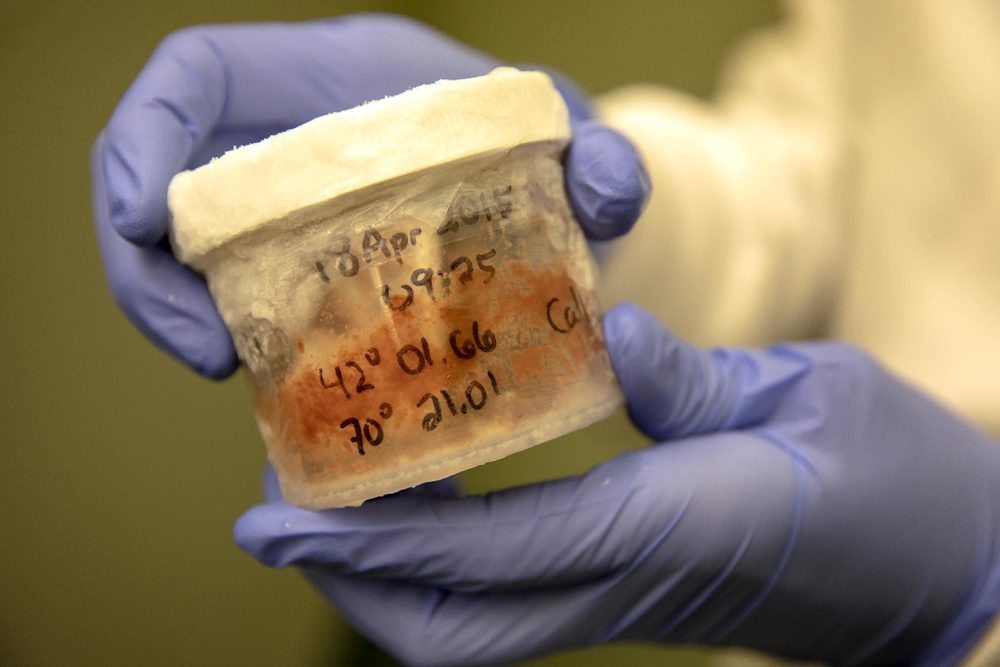Can Feces Save A Species? Boston Has The World’s Largest Collection Of Right Whale Poop

A sample of bright orange right whale scat from the New England Aquarium’s laboratory freezer. Photo by Robin Lubbock for WBUR
The Marine Stress and Ocean Health Lab at the New England Aquarium looks like your typical laboratory. It’s full of humming and whirring machines, beakers and test tubes, digital scales and centrifuges.
What sets it apart is the freezer. At negative 80 degrees Celsius, it houses the world’s largest collection of right whale poop.
Yes, poop.
It sounds gross, but scientists can learn a lot from feces — reproductive and metabolic health, stress levels, exposure to infectious disease and biotoxins. And they can do it without harming or bothering the animals.
“It’s just like if you go to the doctor and get a panel of blood tests. We’re getting that type of information on animals,” says Roz Rolland, senior scientist and director of the Marine Stress and Ocean Health program. She adds that this is especially valuable for right whales, 50-ton animals “that you can’t capture or handle in any way.”
